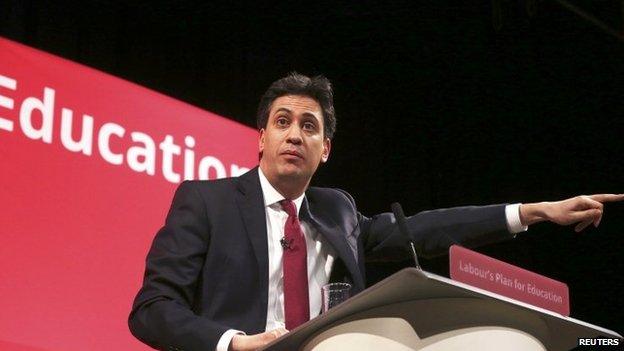Nick Clegg: The choice is me, Salmond or Farage
- Published
- comments
Nick Clegg: ''The Liberal Democrats will add a heart to a Conservative government and a brain to a Labour one''
Nick Clegg has said no party will win an outright election victory and warned voters they face a choice between the Lib Dems, the SNP and UKIP over who holds the balance of power.
Launching his manifesto, external, the Lib Dem leader said he would seek to form a "coalition with conscience" that would not "lurch off to the extremes".
He pledged £2.5bn more for education after 2017 to boost opportunity.
The Conservatives and Labour have both insisted they can win on their own.
UKIP leader Nigel Farage, who published his party's own manifesto on Wednesday, has rejected suggestions he has made approaches to the Conservatives about a post-election deal, saying he would "only be speaking to the British people" between now and 7 May.
'Brain and heart'
Mr Farage suggested a referendum on the UK's membership of the EU would be the main "red line" in any negotiations with another party, saying it would have to be a "full, free and fair" vote rather than a "stitch-up".
Key priorities
Lib Dems
Main pledges
- Balance the budget fairly through a mixture of cuts and taxes on higher earners
- Increase tax-free allowance to £12,500
- Guarantee education funding from nursery to 19 with an extra £2.5bn and qualified teachers in every class
- Invest £8bn in the NHS. Equal care for mental & physical health
- Five new laws to protect nature and fight climate change
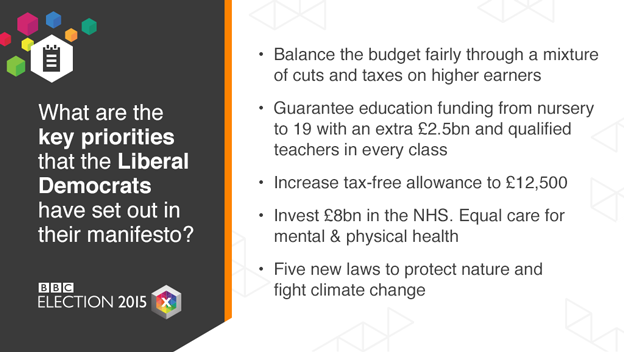
Speaking in south London, Mr Clegg declined to specify any red lines but said he would "die in the trenches" to defend the party's five key priorities on education, health, tax, the deficit and the environment if it stayed in government.
Mr Clegg, whose presentation was interrupted by technical glitches, said no party would win enough seats to gain victory and either the Conservatives or Labour would have to work with others if they wanted to take power.
He said the Lib Dems' "gutsy" decision to join the Conservatives in coalition in 2010 had been vindicated, saying they had turned round the economy and governed with "compassion and a sense of fairness".
Making the case for another coalition, Mr Clegg said a vote for his party would stop the Tories or Labour governing on their own, arguing the Lib Dems would "add a heart to a Conservative government and add a brain to a Labour one".
A "few hundred votes", he claimed, could make the difference between a "decent, tolerant and generous" government in the centre-ground and a "coalition of grievance" involving either the UKIP or SNP.
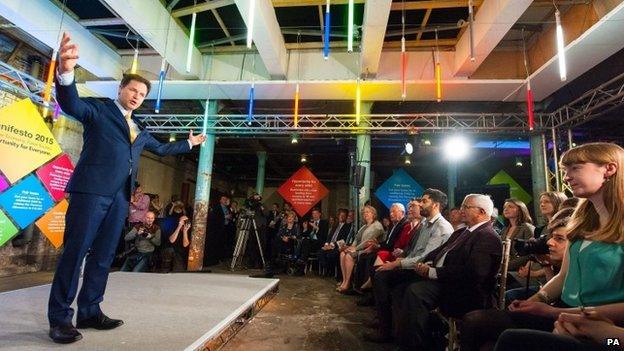
Mr Clegg said the manifesto was a blueprint for a "stronger economy and a fairer society"
Opinion polls suggest the SNP, whose former leader Alex Salmond is standing for Parliament, could make huge gains in next month's poll and Mr Clegg suggested it would be Mr Salmond, rather than his successor as SNP leader Nicola Sturgeon, who could end up "calling the shots".
"Somebody is going to hold the balance of power on 8 May," he said. "It is not going to be David Cameron or Ed Miliband. It could be Alex Salmond, it could be Nigel Farage or it could be me and the Liberal Democrats.
"Only the Lib Dems can make sure the next government keeps Britain on track. Every Lib Dem you elect makes Labour's reckless borrowing less likely, makes George Osborne's ideological cuts less likely and every Lib Dem you elect is a barrier between Nigel Farage and Alex Salmond and the door to 10 Downing Street."

Analysis by political editor Nick Robinson
Even if Nick Clegg's appeal today does not produce a boost in his party's ratings, his party's on course to win between 20 and 40 MPs.
In contrast, Nigel Farage has talked of gaining three or four seats and Natalie Bennett knows her party could struggle to hold the one seat they have. Some believe both parties could end up with no MPs at all.
That's why today Nick Clegg's pitch to the nation was to say, in effect, "if you don't like me have you thought about the alternatives?"
So, if you do agree with Nick on that don't be at all surprised if after 7 May he still has a place at the cabinet table. Read Nick's full blog

But Ms Sturgeon said the SNP would seek to build "progressive alliances" in Parliament for the benefit of people across the UK, adding that Scotland's voice had too often been "sidelined" in the past by the Westminster parties.
In other election news:
UKIP pledge to find 6,000 jobs for army veterans in the police, prison service and Border Agency, spend 2% of national output on defence and ban unskilled migrants coming in to the UK for five years
Labour launches what it calls its women's manifesto, with a pledge to allow working grandparents to share unpaid parental leave
The SDLP, which had three MPs in the last Parliament, calls for a "prosperity plan" for Northern Ireland at its manifesto launch
Conservative candidate and former MP Guto Bebb has called his local party chairman an "idiot" after being told he no longer has his support in a row over election "branding"
Former Cabinet Secretary Lord O'Donnell says civil servants will be preparing for "all sorts of outcomes" to the election, telling the BBC that minority government can be "made to work"
Unveiling a 158-page "programme for government not opposition", Mr Clegg placed education at the heart of the party's agenda, saying it would spend £2.5bn more than Labour and £5bn more than the Conservatives over the next five years.
Under the party's plans, once the current deficit is eliminated in 2017-18, funding for two to 19-year-olds would increase in line with growth in the overall economy, which the Lib Dems say would amount to a cash boost of £2.5bn.
The extra funding, the Lib Dems say, will help limit class sizes and increase the availability of one-to-one tuition, building on its existing pledge to guarantee real-terms increases in education funding for the first two years of the next Parliament.
The Conservatives have said they would protect the budget for 5-16 year-olds in cash terms, so that funding rises in line with pupil numbers but not in line with inflation or economic growth.
'Not modest'
Labour has said it would ensure the budget for infants and pupils under the age of 19 increased in line with inflation but not in line with increases in pupil numbers or economic output.
UKIP leader Nigel Farage said the party was putting forward 'a big tax give away'
The Lib Dem manifesto also includes pledges on balancing the books "fairly" by 2017-18, raising the threshold at which people start paying tax to £12,500 and "parity of esteem" between mental and physical health services in the NHS.
Schools minister David Laws, who helped write the document, said there was "nothing modest" about its commitments and they were underpinned by "sensible and cautious" assumptions about budgets, including a contingency fund in the event of lower-than-expected growth.
Both the Liberal Democrats and UKIP have launched their manifestos - and their opponents have given their reactions
But Deputy Labour leader Harriet Harman said the Lib Dems could not be trusted as they had broken promises on tuition fees, VAT and the NHS made in 2010 and "backed the Tories all the way".
And Conservative Chancellor George Osborne suggested a vote for the Lib Dems or any of the other alternatives on the ballot paper would result in the "economic chaos of an Ed Miliband government".
Green Party leader Natalie Bennett said the Lib Dems' environmental commitments - including a legal requirement for the most polluted cities to create low-emission zones - would not be taken seriously as the coalition's record of delivery had been a "sad sick joke".
The CBI said it agreed with the Lib Dems' emphasis on education but opposed proposed corporate tax rises and curbs on airport expansion.
Subscribe to the BBC Election 2015 newsletter, external to get a round-up of the day's campaign news sent to your inbox every weekday afternoon.
- Published15 April 2015
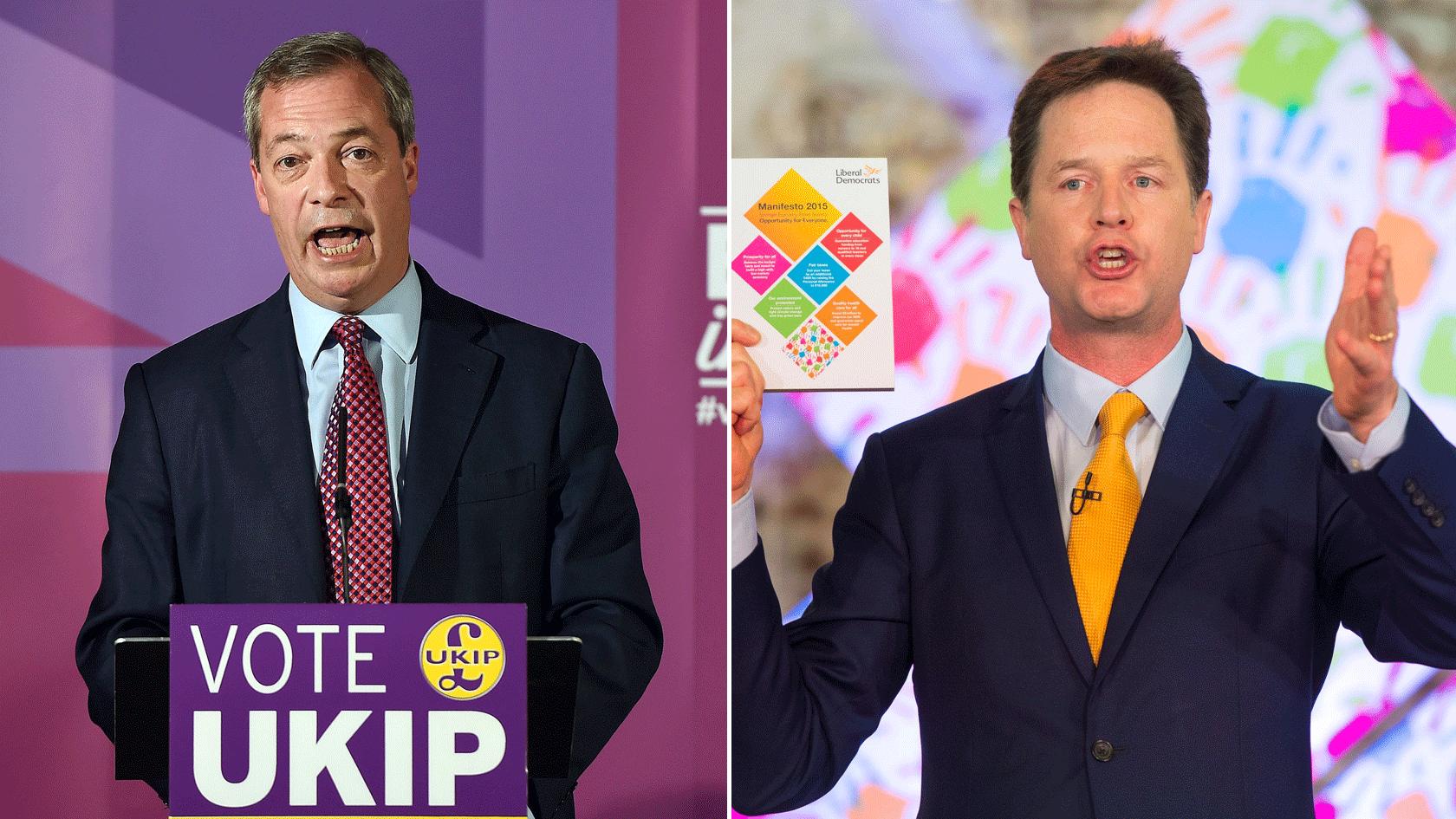
- Published15 April 2015
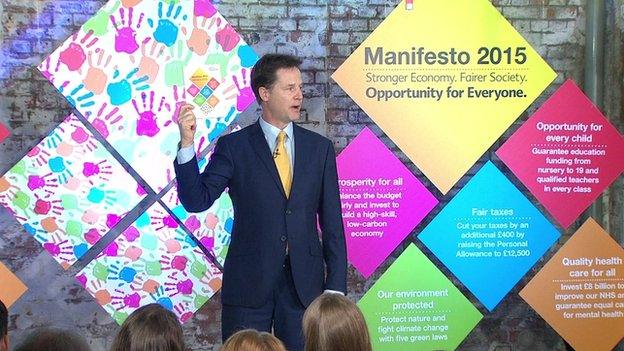
- Published15 April 2015
- Published15 April 2015
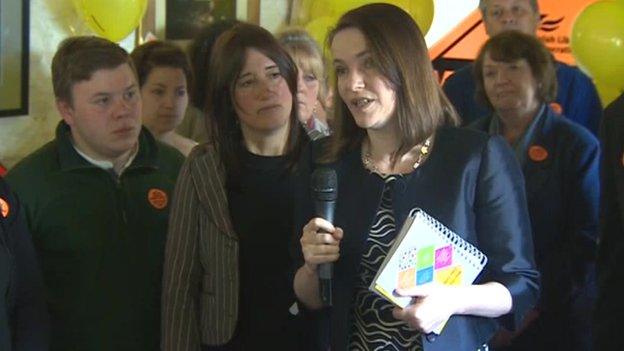
- Published15 April 2015
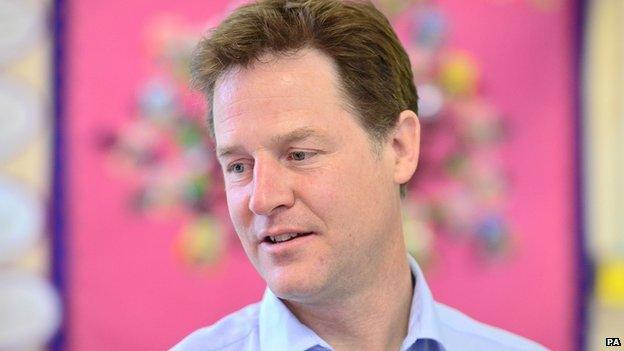
- Published15 April 2015
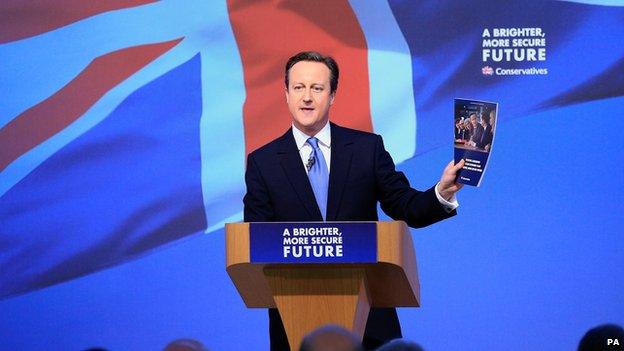
- Published14 April 2015
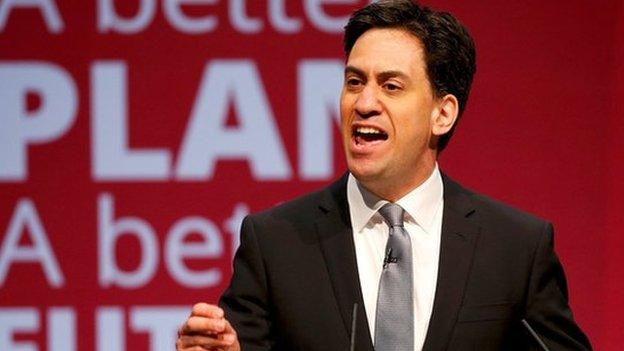
- Published14 April 2015
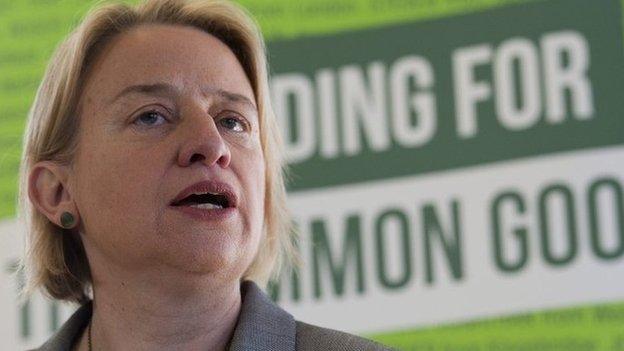
- Published14 April 2015
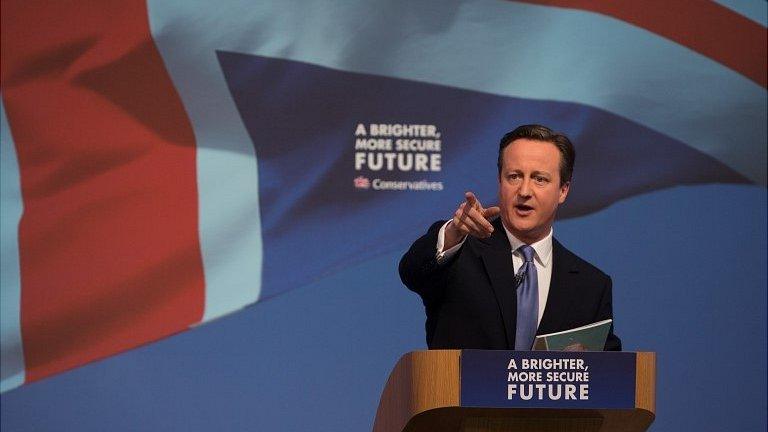
- Published12 February 2015
